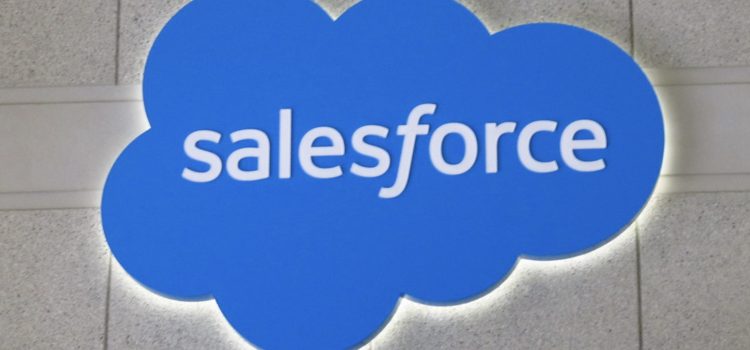

This article is an excerpt from the Shortform book guide to "Trailblazer" by Marc Benioff and Monica Langley. Shortform has the world's best summaries and analyses of books you should be reading.
Like this article? Sign up for a free trial here.
How does Salesforce give back to the world? Why is Salesforce so involved in American politics?
Marc Benioff considers society and the global environment two of Salesforce’s chief stakeholders. A couple of ways he addresses social and environmental problems are through a philanthropic program and campaigning for political change to promote minorities’ rights.
Discover more about Salesforce’s philanthropy efforts.
Addressing Social and Environmental Needs at Salesforce
One way Benioff says Salesforce meets societal needs is through its 1-1-1 program: In addition to promoting employee volunteerism, Salesforce Foundation donates 1% of its money and resources like computers to communities in need. It also encourages other corporations to follow suit via its Pledge 1% campaign. As for the environment, Benioff says Salesforce’s philanthropy campaigns are improving the sustainability of its operations and donates employee time to environmental causes.
(Shortform note: The executive responsible for Salesforce’s philanthropy model, Suzanne DiBianca, explains that two factors set the model apart from those of other companies: First, instead of donating one type of resource to one cause and another type of resource to another cause, Salesforce combines the three types of donatable resources—money, materials, and volunteers—for each cause it contributes to, which maximizes its impact in that area. Second, it requires less initial investment of resources than most philanthropic models. She says the shoe company TOMS, for example, donates one pair of shoes for each pair sold, which is a large enough investment to deter some companies from adopting the model.)
Benioff also explains that as the impactful leader of a large, successful corporation with a wealth of resources at his disposal, he feels compelled to proactively address stakeholders’ problems in his personal life. This compulsion has led him to take personal responsibility for addressing social and environmental problems—he hopes that by demonstrating the power CEOs have to steward society and the environment, he’ll set an example for other business leaders and inspire them to get involved. He’s involved in traditional philanthropy—for example, he founded the Benioff Ocean Initiative to fund marine conservation research—which is common for CEOs, but he takes his responsibility a step further by campaigning for political change.
Benioff describes two times when he campaigned for political change. First, in 2015, Indiana passed a law that could allow businesses to legally turn away LGBT customers on the basis of religious freedom. After employees expressed fear about how the law would impact their lives, Benioff announced on Twitter that Salesforce would reduce its heavy involvement in Indiana, diverting funds from the state’s economy. Benioff says that his outspokenness emboldened other CEOs to take similar stance and eventually, the economic pressure these companies exerted convinced the state to revise the law, clarifying that it couldn’t be used to justify anti-LGBT discrimination.
(Shortform note: In an interview with Kara Swisher, Benioff revealed that he was emboldened to tweet about Salesforce’s protest against Indiana’s anti-LGBT legislation by a few alcoholic beverages. Although he wasn’t confident in his decision to tweet the next morning, Benioff followed through on this impulsive decision to defend LGBT rights despite considerable pushback. He reused the strategy a year later in Georgia, pressuring the state to repeal similar legislation. As a result, conservatives challenged him to remove Salesforce from countries like Singapore, which also have anti-LGBT laws. As of 2024, Salesforce maintains offices in those areas.)
Benioff campaigned for political change again by advocating for San Francisco’s Proposition C, a 2018 effort to impose a tax on the city’s largest corporations to fund services for the homeless, which many business leaders lobbied against. Benioff explains that the technology sector, including Salesforce, was partially to blame for the city’s growing homelessness problem—by locating there to take advantage of tax cuts, they drove up housing costs, which exacerbated homelessness, a problem that creates mass suffering, social strife, and unsafe, unsanitary street conditions. Benioff says he generated publicity for the cause by getting into a public disagreement with Twitter founder Jack Dorsey about it, which helped the proposition pass.
(Shortform note: Tech companies and their leaders have been criticized not only for helping to create San Francisco’s homelessness problem but also for treating the homeless inhumanely—for example, business owner Justin Keller came under fire for expressing that wealthy people are entitled to live in the area without having to witness the pain associated with homelessness and for using dehumanizing language to refer to homeless people. In addition to challenging Dorsey to support Proposition C and other measures to help homeless people, Benioff argued publicly with Mark Pincus of video game company Zynga. Although Proposition C passed in 2018, it was paused due to legal challenges until the California Supreme Court allowed it to resume in 2020.)
| The Myth of the Apolitical Corporation Some shareholders—including a company then led by conservative presidential candidate Vivek Ramaswamy—have criticized Benioff for leveraging his position as Salesforce’s CEO to advocate for political causes. Ramaswamy’s company argued that such actions misallocate company funds and shortchange shareholders, which was a serious critique because it arose during a period of financial difficulty and increased pressure from shareholders on Salesforce. However, Salesforce has since rebounded, and it’s worth noting that Ramaswamy’s company also made contributions to highly politicized causes, like the oil and gas industry. In today’s highly polarized political landscape, corporations and their executives risk facing significant backlash when they use business as an avenue to address social and environmental issues. But the demand for businesses to stay out of politics may be founded on a myth: Some argue that it’s impossible to be apolitical, since every business decision, from hiring practices to product offerings, inherently reflects values and beliefs that intersect with political and social issues. Thus, businesses often cannot avoid taking a stance on various issues, whether implicitly or explicitly. Furthermore, American corporations have the same legal right to free speech that individuals have, which bolsters their political influence. Benioff directly contests the myth of the apolitical corporation by actively engaging in political advocacy and challenging other business leaders to get involved in pressing social and environmental issues. Benioff believes that when the Fifth Industrial Revolution rolls around, the public will demand political engagement from businesses, and the decisions of many CEOs to follow Benioff’s lead suggests this is accurate. However, some experts suggest that billionaire businessmen may not make ideal changemakers, since their immense wealth and privilege increases the likelihood that they’ll be out of touch with the average person’s needs. |

———End of Preview———
Like what you just read? Read the rest of the world's best book summary and analysis of Marc Benioff and Monica Langley's "Trailblazer" at Shortform.
Here's what you'll find in our full Trailblazer summary:
- What “principled business” means and why it matters to you
- The priority that Salesforce—a Fortune 500 company—puts before profit
- How capitalism can look different in the future






